Post
A catch
Save a catch to start your fishing logbook. You will be able to to share it with the community if yo want!
A fishing trip
Post an ad to go fishing with other fishermen
Save a catch to start your fishing logbook. You will be able to to share it with the community if yo want!
Post an ad to go fishing with other fishermen
Share a thought, a question with the community
My favorite cities
×Join our 3 fishermen in Louise in Humphreys. The fishing forecast is currently 3.1. The most caught fishes here are the pallid sturgeon, the alligator gar, brown trout and the blueback herring. Come try the most famous fishing techniques like the angling - using natural bait, surf fishing, fishing bream from a dock or jetty or gathering seafood by hand.
Our fishing forecast of Louise indicates the best time to go fishing in this city.
The Pallid Sturgeon
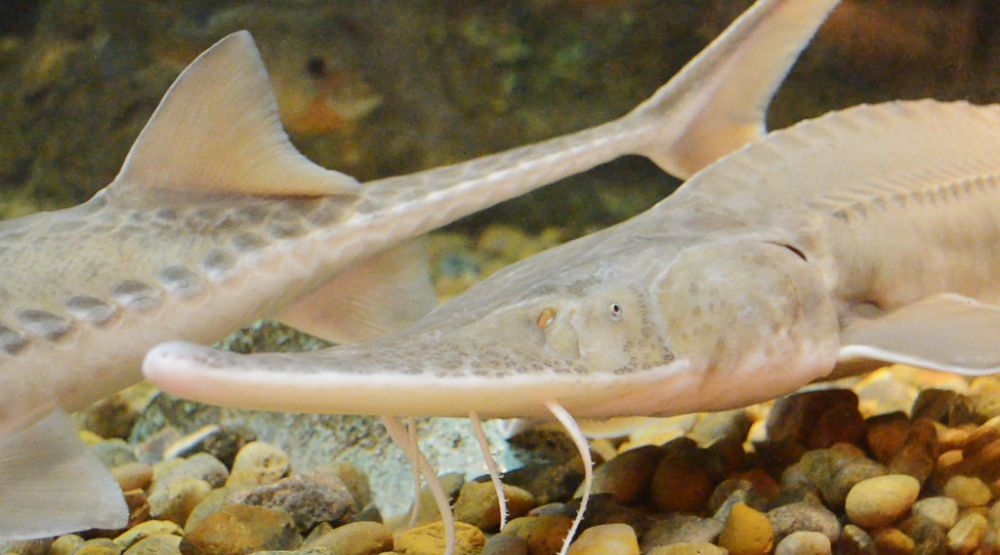
The Pallid Sturgeon belongs to the Acipenseridae family. it measures between 70 and 150 cm long and 39 kg in adulthood. The Pallid Sturgeon takes 15 years to reach maturity, and can live for more than a century. it breeds from May to July. Considered as endangered, it cannot be caught. Like the other Acipenseridae, it is considered as a "living fossil". The Pallid Sturgeon has a characteristic appearance that makes it to be qualified as "primitive" or "dinosaur". It has a pale color, especially in adults who fade with time, with a greyish back and sides. Its caudal fin is heterocercal, with an upper lobe more developed than the lower lobe. Like other sturgeons, the Pallid Sturgeon has no calcified scales or bones, unlike more recent fish species. It has a cartilaginous skeleton with five rows of thick patches that extend along its sides, belly, back and most of its head. These plates are covered by the skin and protect the animal. This cartilage also extends to the back of the fish’s body, between the dorsal fin and the tail. The mouth starts well set back from the tip of the head. Because it has no teeth, it uses this stretchy mouth to suck small fish, shellfish and other foods from the bottom of the river. Like all sturgeons, it has four barbells. We think they have a sensory role in detecting food.
The Pallid Sturgeon is a famous fish you can catch in Louise.The Alligator Gar
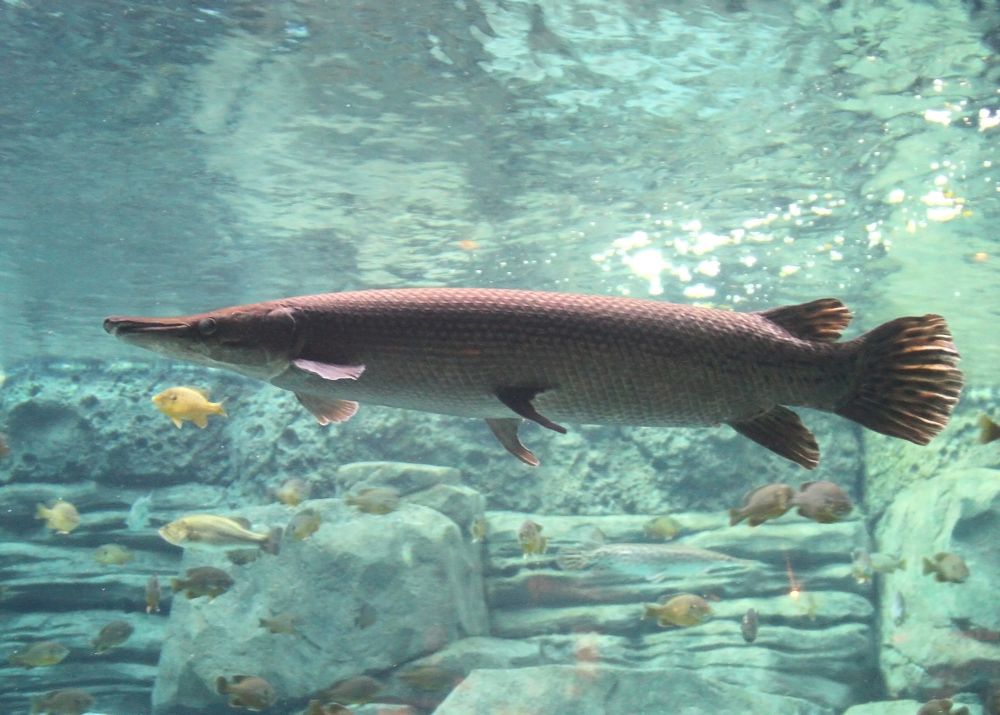
The Alligator Gar belongs to the Lepisosteidae family. In its adult form, it can measure up to three meters long and weigh up to 140 kilograms. It breeds in spring. It can be fished all year round. Alligator gar are elongated fish with a long, narrow snout. Their scales form a kind of armor, protecting them from other predators, the scales are similar in hardness to our nails, hard as keratin. They are also sharp, never brush a sharp-edged club fish. These fish have the swim bladder modified into a gas bladder, it allows them to breathe at the surface.
The Alligator Gar is a famous fish you can catch in Louise.Brown Trout
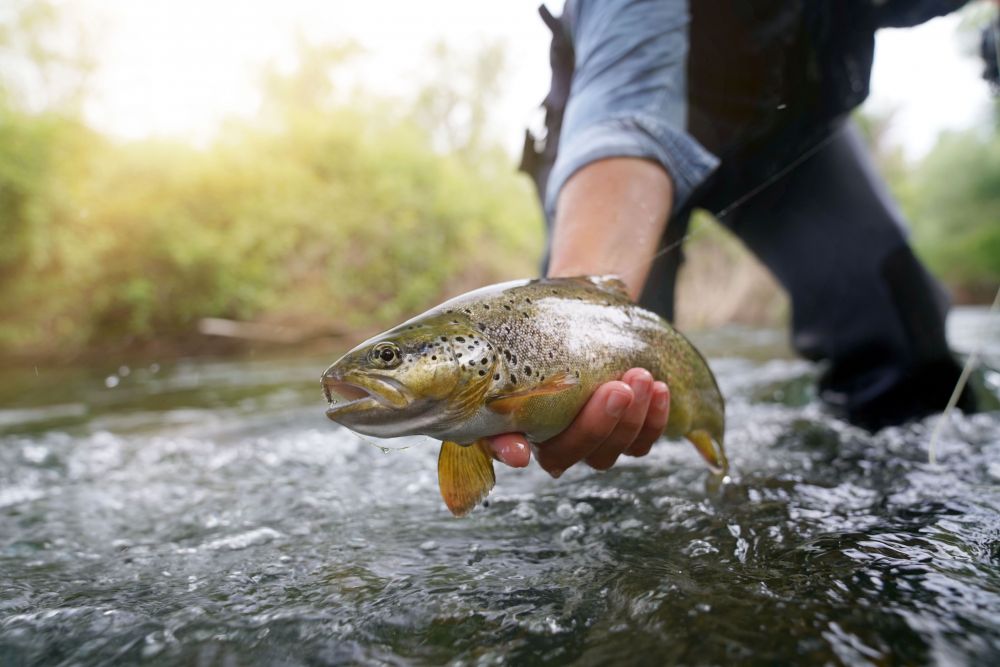
The Brown Trout belongs to the Salmonidae family. According to the location, the adult size varies from 25 cm to 80 cm for 300 to 800 g. It lives for 3 to 6 years. The spawning period starts in October and end in January. The female can lay up to 4000 eggs. The fishing period is open from the second Saturday of March until the third Sunday of September. This fish is not hard to catch but the fishing needs complex skills. Depending on its environment, the brown trout have a very variable color, but the brown trout, as its name shows, is rather brown with scattered black and red spots, depending on the spawners. It has a certain mimicry according to the bottom of its living spaces since the dominant brown will become a green dress if it lives close to the banks where yellow and even sometimes silvery white will mix. It has a "useless" adipose fin between the dorsal fin and the caudal fin. The head is tapered, strong and has a powerful jaw. Its back is a pretty black or night blue.
Brown Trout is a famous fish you can catch in Louise.The Blueback herring
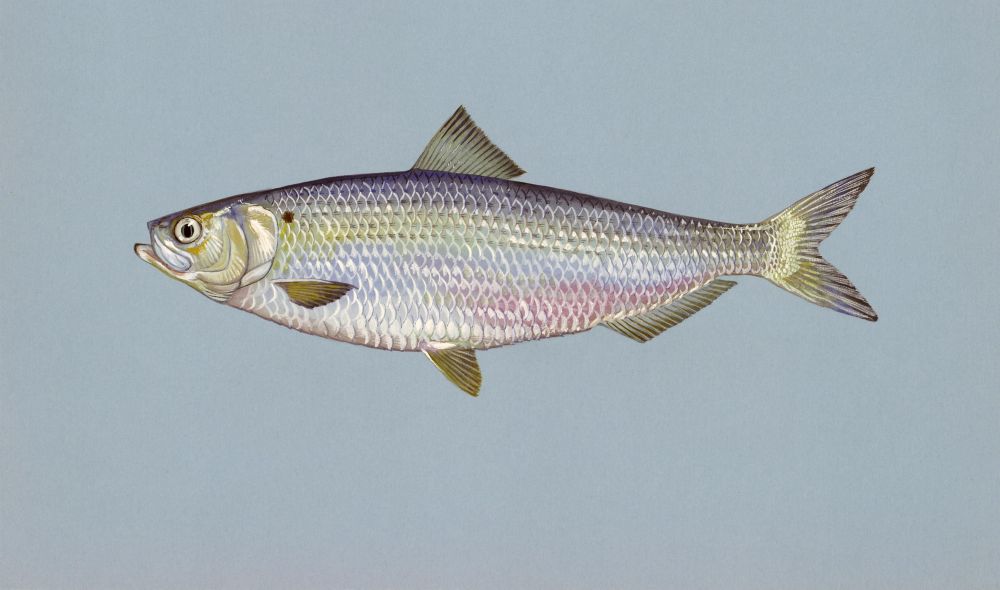
The Blueback Herring belongs to the Clupeidae Family. They reach a maximum size of about 40 centimeters and are assumed to live up to 8 years. They spawn from mid-March to the end of May. The Blueback herring can be fished all year round. These fish are silvery in color, have a series of scutes along their bellies and are characterized by a deep blue-green back. What distinguish this fish the most from other species is the black to dark color of its peritoneum (the mucous membrane of the abdominal cavity). It is one of the "distinctive" North American shads. They are often confused with alewives because it is difficult to differentiate between blue shad and alewife and, together, these two species are often considered collectively as "river herring". Female have larger eyes, greater body depth and a pearl to peritoneal white lining.
The Blueback herring is a famous fish you can catch in Louise.The Bronze Bream
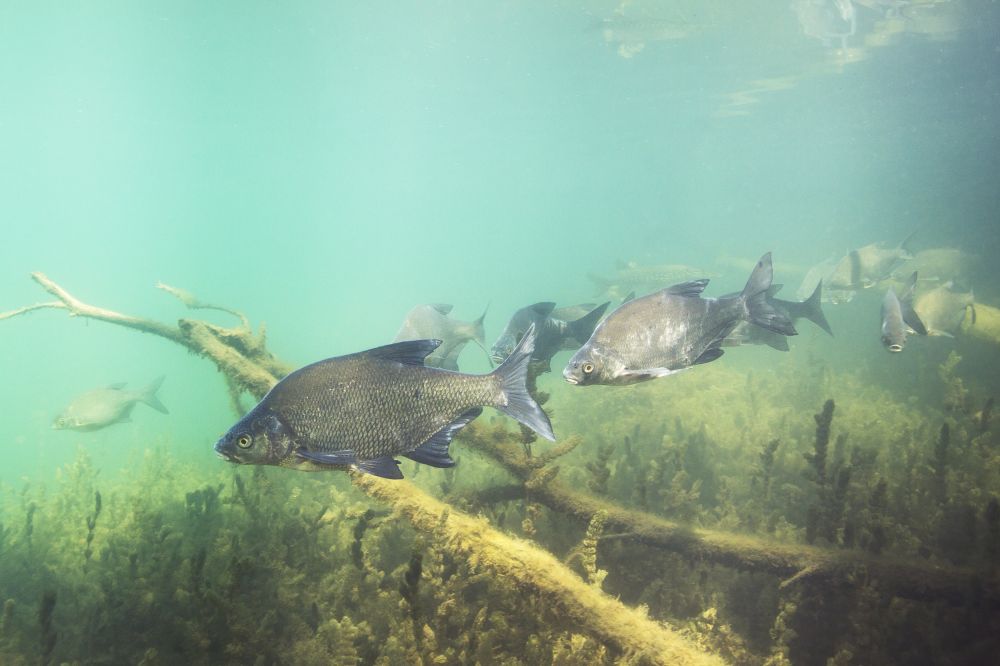
The Bronze bream belongs to the Cyprinidae Family. The current catch size varies between 30 and 50 cm, for a weight of 0.5 and 2.5 kg. Some individuals can reach a maximum height of 80 cm for a weight of 7 kg. It lives between 20 and 25 years. It reproduces between April and June and lay 100,000 to 300,000 eggs. The Bronze Bream can be fished all year round in 2nd category streams and is not hard to catch with the right bait. In Europe, there are 2 or 3 types of bream, 5 species and 2 subspecies. The Bronze bream has a very high and strong body flattened laterally. The bushy back, especially in older individuals, is characteristic of this fish. Its body is covered with large scales and mucus. The Bronze bream has a fairly small eye compared to the size of the muzzle. The mouth is small, oblique, barbless and protractile. The upper jaw protrudes beyond the lower jaw. Teeth are subject to seasonal replacement. The anal fin is very long and has 23-30 soft rays. On the other hand, the dorsal fin is short and inserted behind the pelvic fins. The caudal fin is very indented with the lower lobe longer than the upper lobe.
The Bronze Bream is a famous fish you can catch in Louise.Our fishing forecast of Louise indicates the best time to go fishing in this city.
Our fishing forecast of Louise indicates the best time to go fishing in this city.
Our fishing forecast of Louise indicates the best time to go fishing in this city.
